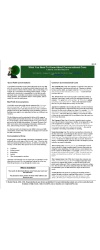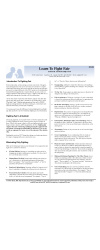1. Introduction: The Role and Impact of Workplace Humor
Workplace humor is a common aspect of many professional environments, often seen as a way to alleviate stress, foster camaraderie, and enhance overall workplace satisfaction. However, while humor can be a powerful tool for building relationships and promoting a positive work atmosphere, it also carries inherent risks and can occasionally have detrimental effects. This article explores the dangers of workplace humor, delving into the boundaries that must be considered, the potential for offense and harm, the legal implications, as well as the impact on employee well-being, communication, and productivity. By examining these aspects, we aim to provide a comprehensive understanding of the complexities underlying workplace humor and the importance of cultivating an inclusive and respectful work environment.
1. Introduction: The Role and Impact of Workplace Humor
Defining workplace humor
Workplace humor is like a spoonful of sugar that helps the workday go down. It encompasses the jokes, banter, and playful interactions that bring a sense of levity to our professional lives. From witty one-liners to office pranks, humor can serve as a valuable tool for building relationships and fostering a positive work environment.
The importance of workplace culture
Workplace culture sets the stage for the kind of humor that flourishes within an organization. When there’s a healthy and inclusive culture that encourages open communication and mutual respect, humor can thrive. It becomes a means of connecting people, relieving stress, and boosting employee morale.
Examining the impact of humor on employee morale and engagement
A little laughter goes a long way in making work enjoyable. Humor has the power to alleviate tension, reduce stress levels, and increase overall job satisfaction. It can also enhance teamwork, as shared jokes create a sense of camaraderie among colleagues. When employees feel happy and engaged, they’re more likely to be productive and loyal to their organization.
2. The Fine Line: Understanding the Boundaries of Workplace Humor
The subjective nature of humor
Humor is a tricky thing, as what’s funny to one person may not be to another. Everyone has different boundaries and sensitivities when it comes to jokes. It’s important to be mindful of this subjectivity and avoid humor that could potentially cause offense or discomfort.
The difference between appropriate and inappropriate humor
Appropriate workplace humor is light-hearted, inclusive, and respectful. It brings people together and doesn’t target individuals or perpetuate stereotypes. Inappropriate humor, on the other hand, crosses the line by being offensive, discriminatory, or hurtful. It’s crucial to recognize this distinction and err on the side of caution.
Recognizing the potential for harm and offense
While humor can create a positive work environment, it also has the potential to harm and offend. What may seem harmless to one person may be deeply hurtful to another. It’s essential to consider the diverse perspectives and backgrounds of your colleagues and avoid jokes that could marginalize or alienate anyone.
3. Creating a Hostile Environment: When Workplace Humor Turns Offensive
The impact of discriminatory language or jokes
Humor that relies on discriminatory language or jokes can contribute to a hostile work environment. It perpetuates stereotypes, undermines diversity, and creates discomfort for those who are targeted. This kind of humor hampers teamwork, breeds resentment, and can even lead to legal consequences.
Bullying and harassment disguised as humor
Sometimes, workplace humor can be a wolf in sheep’s clothing, disguising bullying or harassment as harmless jokes. This behavior not only damages individuals’ well-being but also erodes trust and undermines the foundation of a healthy work environment. It’s important to be vigilant in identifying and addressing any form of humor that crosses the line into bullying or harassment.
The role of power dynamics in perpetuating offensive humor
Power dynamics within the workplace can often exacerbate the impact of offensive humor. When individuals in positions of authority use humor to belittle or demean their subordinates, it creates a toxic environment where fear and insecurity thrive. This can have severe consequences on employee well-being, job satisfaction, and overall team cohesion.
4. Legal Implications: The Consequences of Inappropriate Humor at Work
An overview of relevant workplace discrimination laws
Inappropriate workplace humor can have legal ramifications. Various laws, such as Title VII of the Civil Rights Act, prohibit discriminatory practices, including offensive jokes or comments based on race, gender, religion, or other protected characteristics. Additionally, many countries have legislation specifically targeting workplace harassment and discrimination.
Potential legal consequences for employers and employees
Employers who fail to address and prevent inappropriate humor may face legal action, including lawsuits and financial penalties. Employees who engage in offensive humor may also face repercussions, such as disciplinary action or termination. Understanding and complying with the law is crucial in maintaining a safe and inclusive work environment.
Case studies highlighting legal action related to workplace humor
Numerous real-life cases serve as cautionary tales when it comes to inappropriate workplace humor. From high-profile lawsuits to smaller-scale disputes, these cases demonstrate the serious consequences that can arise from the misuse of humor. Learning from these examples can help organizations foster a culture of respect and avoid legal entanglements.
Remember, humor is a powerful tool, but with great power comes great responsibility. By understanding the boundaries, staying mindful of potential harm, and fostering an inclusive environment, workplace humor can be a force for good, improving employee morale and engagement without compromising on respect and dignity.
5. Emotional Impact: The Effect of Workplace Humor on Employee Well-being
The psychological effects of toxic humor
In the world of comedy, there’s a thin line between harmless banter and toxic humor. Toxic humor refers to jokes, remarks, or pranks that belittle, demean, or humiliate others. While it may bring a few laughs in the moment, the long-term emotional impact on employees can be damaging. Constant exposure to toxic humor can lead to decreased self-esteem, increased stress, and feelings of isolation within the workplace. It’s important for organizations to create a culture that discourages such behavior and prioritizes employee well-being.
Increased stress levels in a hostile humor environment
Laughter is supposed to be stress-relieving, right? Well, not always. In a workplace where humor takes a hostile turn, the result can be increased stress levels for employees. Constantly being on guard for sarcastic comments or hurtful jokes can create a tense and anxious atmosphere. This can have a detrimental effect on employee mental health, leading to decreased productivity and job satisfaction.
The importance of fostering a supportive and respectful work atmosphere
A supportive and respectful work atmosphere is crucial for employee well-being and overall organizational success. By fostering an environment where humor is used to uplift and connect, rather than to ridicule and divide, companies can enhance employee morale, build stronger teams, and create a positive work culture. Encouraging empathy and understanding among colleagues will help ensure that workplace humor is a tool for cohesion rather than a source of distress.
6. Communication Breakdown: How Humor Can Hamper Effective Communication
Misinterpretation and misunderstandings caused by humor
Have you ever tried to tell a joke, only to have it fall flat and leave everyone confused? The same can happen in the workplace. Humor can often be subjective, leading to misinterpretation and misunderstandings. What one person finds funny, another may find offensive or confusing. This can create barriers to effective communication and lead to tension among team members. It’s important to be mindful of these potential communication breakdowns and strive for clarity and inclusivity in all workplace interactions.
Barriers to clear and open communication in a humor-driven workplace
In a workplace where humor becomes the primary mode of communication, there is a risk of important messages being lost or diluted. When everything is said in jest, it can be difficult to discern when someone is being serious. This can hinder the sharing of ideas, feedback, and concerns, ultimately affecting the overall productivity and success of the organization. Striking a balance between humor and clear, open communication is key to maintaining effective workplace dynamics.
Strategies for promoting effective communication alongside humor
Humor can be a powerful tool for creating a positive and engaging work environment, but it should not come at the expense of effective communication. Encouraging open dialogue, active listening, and clear communication channels can help mitigate the potential communication barriers caused by humor. Additionally, fostering a culture of respect where everyone’s contributions are valued can create an environment where humor and communication coexist harmoniously.
7. Productivity and Collaboration: Balancing Humor and Work Responsibilities
The impact of excessive or distracting humor on productivity
“All work and no play makes Jack a dull boy,” they say. While a little humor can boost morale and encourage creativity, excessive or distracting humor can negatively impact productivity. When jokes and lighthearted banter become a constant interruption, it can hinder concentration, disrupt workflow, and lead to missed deadlines. Striking a balance between humor and work responsibilities is essential for maintaining productivity in the workplace.
Fostering a balance between humor and work priorities
Creating a work environment that allows for both productivity and humor requires finding a balance between the two. Clear expectations and guidelines can help employees understand when humor is appropriate and when it’s time to focus on work tasks. Encouraging time management and prioritization skills can also help employees navigate the fine line between enjoying a good joke and staying on top of their responsibilities.
Collaboration challenges in a workplace with conflicting humor styles
Humor can be highly subjective, and what may be hilarious to one person may fall flat for another. In a workplace where individuals have conflicting humor styles, collaboration can become a challenge. It’s important for team members to acknowledge and respect these differences, finding common ground to foster effective collaboration. Emphasizing empathy and open-mindedness can help bridge the gap and create a cohesive and productive team.
8. The Fine Line: Navigating Humor in a Professional Setting
The risk of crossing boundaries and offending colleagues
Humor can be a double-edged sword in the workplace, as it carries the risk of crossing boundaries and offending colleagues. What may seem like a harmless joke to one person may be deeply hurtful to another. It’s crucial to be mindful of the potential impact our words and actions may have on others and to err on the side of caution. Remember, it’s always better to be safe than sorry when it comes to maintaining professional relationships.
The importance of understanding cultural and individual sensitivities
Cultural and individual sensitivities play a significant role in determining what is deemed acceptable or offensive in humor. What may be considered funny in one culture can be taboo in another. Additionally, individuals have their own unique set of sensitivities and boundaries. Taking the time to understand and respect these differences can help foster a more inclusive and harmonious workplace environment.
Tips for using humor responsibly and respectfully in the workplace
Want to inject some humor into your workplace without causing harm? Here are a few tips to help you use humor responsibly and respectfully:
1. Know your audience: Understand the preferences and sensitivities of your colleagues before cracking a joke.
2. Avoid offensive topics: Stay away from sensitive subjects like race, religion, politics, or personal matters that may cause discomfort or offense.
3. Keep it light: Stick to light-hearted, inclusive humor that brings people together rather than creating divisions.
4. Be mindful of timing: Choose appropriate moments for humor and avoid jokes that may disrupt important work tasks or meetings.
5. Apologize if needed: If you unintentionally offend someone with a joke, apologize sincerely and learn from the experience.
6. Listen and adapt: Pay attention to feedback from colleagues and adjust your humor style accordingly to ensure a positive and respectful work environment.
By following these tips, you can make the workplace a more enjoyable and inclusive space whileIn conclusion, workplace humor is a double-edged sword that requires careful navigation and consideration. While it can bring levity and build relationships, it also carries the potential for harm, legal consequences, and negative impacts on employee well-being and productivity. It is crucial for organizations to establish clear guidelines and foster a culture of respect and inclusivity, where humor is balanced with professionalism and sensitivity. By recognizing the dangers of workplace humor and actively working to mitigate them, companies can create a healthier and more harmonious work environment that cultivates the success and satisfaction of all employees.
FAQ
1. Can workplace humor ever be completely eliminated?
While it may not be feasible or desirable to completely eliminate workplace humor, it is essential to establish boundaries and guidelines to ensure that it remains appropriate and respectful. Creating a culture that encourages inclusive and positive humor while discouraging offensive or harmful jokes is crucial for maintaining a healthy work environment.
2. How can employers address offensive humor in the workplace?
Employers should take a proactive approach in addressing offensive humor by implementing clear policies that outline what is considered unacceptable and inappropriate. This can include providing training on diversity and inclusion, promoting open communication channels for reporting concerns, and taking prompt action to address any instances of offensive humor. Employers must lead by example and foster an environment where employees feel comfortable speaking up against offensive jokes or behaviors.
3. What are the legal consequences of inappropriate workplace humor?
Inappropriate workplace humor can have serious legal implications. Harassment or discrimination disguised as humor can lead to lawsuits and legal claims against both the individual responsible and the organization. Employers may be held liable for failing to address or prevent offensive humor in the workplace, resulting in financial penalties and damage to the company’s reputation. It is crucial for employers to understand and comply with relevant workplace discrimination laws to mitigate legal risks.
4. How can employees promote a positive and inclusive humor culture?
Employees play a vital role in promoting a positive and inclusive humor culture. This can be achieved by being mindful of the impact of their jokes and comments, avoiding offensive or derogatory humor, and actively supporting colleagues who may be targeted by inappropriate humor. By promoting respect and empathy in their interactions, employees can contribute to a workplace environment where everyone feels valued and included.






